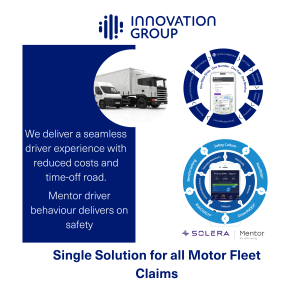Fleet managers find themselves at a critical juncture in a rapidly changing world driven by data and technological advancements.
Colin Sutherland, Chief Customer Officer at Geotab, recognizes the need for fleet managers to adapt and evolve their careers. He emphasises the importance of critical thinking and equipping oneself for success in a dynamic industry.
Here are the key takeaways from his talk, highlighting the transformation of fleet managers from asset managers to strategic decision-makers.
From Asset Management to Strategic Thinking
Traditionally, fleet managers were responsible for procuring and maintaining vehicles, managing expenses, and ensuring efficient operations. However, Sutherland argues that fleet managers must transition from being mere cost centres to strategic assets for their companies. The wealth of data generated by fleet vehicles can be leveraged to transform businesses. Sutherland urges fleet managers to position themselves at the strategy table, becoming integral to decision-making processes.
Breaking Down Silos and Engaging Stakeholders
One significant challenge for fleet managers has been the siloed nature of data within the fleet department. Often, crucial decisions, such as transitioning to electric vehicles, are made without involving fleet managers. This lack of inclusion hampers critical thinking and limits the fleet manager’s ability to contribute strategically. Sutherland encourages fleet managers to break down these silos and engage stakeholders across departments, such as sustainability, strategy, and procurement. By collaborating and sharing data, fleet managers can contribute valuable insights and ensure that decisions align with broader business objectives.
Embracing Technological Advancements
Technological advancements have significantly impacted fleet management, enabling greater access to data and insights. Sutherland highlights key milestones such as the introduction of scan tools in the late 1980s and GPS technology in the 1990s. These innovations democratized knowledge and provided fleet managers with essential data points for decision-making. More recently, safety sensors, like accelerometers, have emerged as crucial tools in fleet management, enabling risk management and improved driver safety. Fleet managers must stay informed about emerging technologies and their potential impact on their organizations.
Expanding the Data Ecosystem
To unlock the full potential of fleet data, fleet managers must consider the broader ecosystem of stakeholders. It is crucial to identify and collaborate with internal and external partners who can benefit from fleet data. This includes departments like procurement, IT, and risk management, as well as external entities such as service providers and insurers. By understanding the varied interests and needs of these stakeholders, fleet managers can deliver actionable insights and contribute to overall business success.
Owning the Decision-Making Process
Sutherland emphasizes that fleet managers cannot outsource decision-making when it comes to evolving technologies and data-driven strategies. They must take ownership and become the experts within their organizations. With technology convergence and rapid industry changes, no single expert exists. Fleet managers must embrace the opportunity to learn and become knowledgeable about various topics, even if they may be outside their current expertise. By doing so, fleet managers can effectively navigate the evolving landscape and make informed decisions.
In a Nutshell
The role of fleet managers is undergoing a profound transformation. No longer confined to asset management and expense control, fleet managers have the potential to become strategic data holders within their organizations.
By embracing critical thinking, breaking down silos, engaging stakeholders, and staying informed about technological advancements, fleet managers can position themselves as valuable contributors to their companies’ success. The ability to harness data and drive strategic decision-making will be instrumental in shaping the future of fleet management.
Did you find this article interesting? Give it a ‘like’ by clicking the ‘heart’ button above!



















